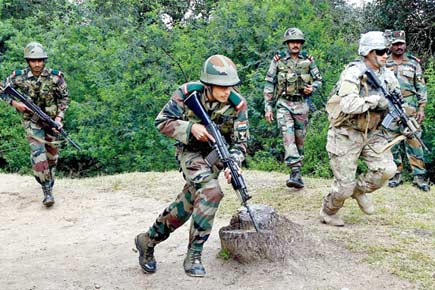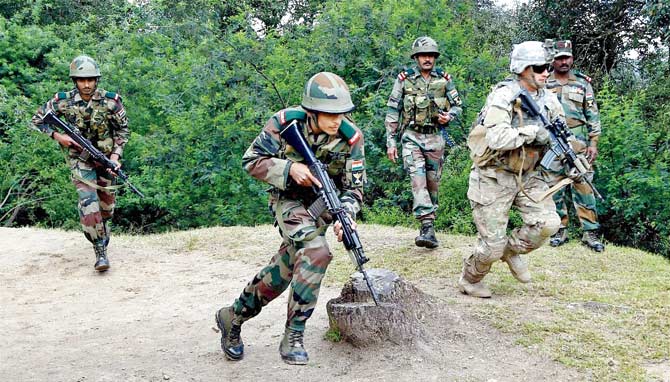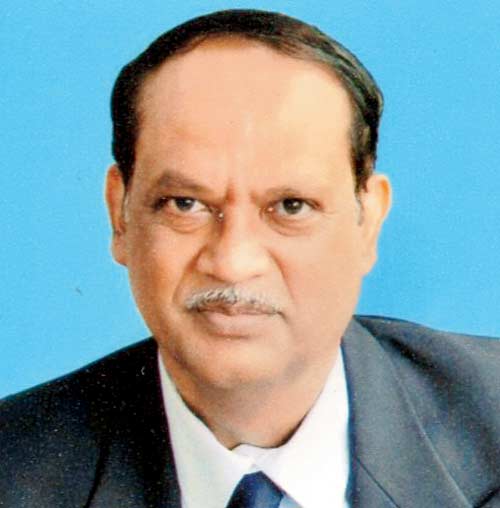Political statements are mere knee jerk reactions, while the sacrifice of the soldier goes unrecognised, says Col (retired) Suhas Jatkar


Indian and US soldiers take part in a reflex shooting during the Indo-US joint exercise Yudh Abhyas 2016 in Ranikhet. Pic/PTI
The simmering Uri anger cauldron is sparking debates and statements, such as sending Pak artistes back to their country. This is fine for political parties, but all the Indian soldier and his family want is “that the sacrifices be recognised,” says Col. (Retd) Suhas Jatkar, Maharashtra Ex-Servicemen Corporation (MESCO) Managing Director from Pune.
ADVERTISEMENT

Col (Retd) S Jatkar
“The ways to do that are a leader going to meet the family of the slain soldier, the widow being given financial help, the family being made to feel and believe that there is someone to look after them...”
Honour the sacrifice
What hurts the Indian soldier most are empty words and the tendency to use sweeping phrases for four days, maybe, after which they are forgotten. “Their (the soldiers’) stories must be told,” emphasises Jatkar.
When asked directly about the Uri attack, in which 18 soldiers were killed, Jatkar says, “These are fidayeen (suicide) attacks. The attackers come in to die, so there is bound to be damage, we have to aim to lessen that damage. To go to war or not is a decision to be taken by the government, what we can do is ensure that the soldier gets the best possible equipment. As civilians, we must make the soldiers feel that the nation is behind them. If a soldier of today sees that families of his slain colleagues are being taken care of, that is a huge reassurance for him.”
For Jatkar, the soldier has come “much closer” (distance-wise) in a way. “He is no longer the alien figure standing on the border for ordinary people. In the same way, for soldiers too, there is less isolation, because of social media. We must motivate them through all these platforms,” advises Jatkar, and adds, “Eliminate divisiveness. Internecine problems of region, zonal issues, and water-sharing caste wars should disappear; the biggest boost for a soldier is a feeling of nationalism in the country. The divisions inside need to go.”
Respect the uniform
For Pune’s Lt. Col (retd.) P Brahmankar, “It is respect that resonates most with the fauj. By respect, I do not mean that the fauji wants a civilian to stand up and salute him when he enters a room. It is good if civilians, who are in authority, talk in a low, polite voice with a soldier when he asks them for something, or address his query. For example, ex-defence personnel may have to go to an office to collect their pension. The civilian officer there needs to address them respectfully; just a little politeness and the man in uniform feels cared for, he does not ask for grandiose gestures.”
Busy fulfilling his duty
Col. Brahmankar adds that statements like “sending Pak actors or cricketers back to their country” are in the political sphere. “They are hardly a blip on the soldier’s radar, he is too busy fulfilling his duty and worrying about his family,” he finishes.
 Subscribe today by clicking the link and stay updated with the latest news!" Click here!
Subscribe today by clicking the link and stay updated with the latest news!" Click here!







